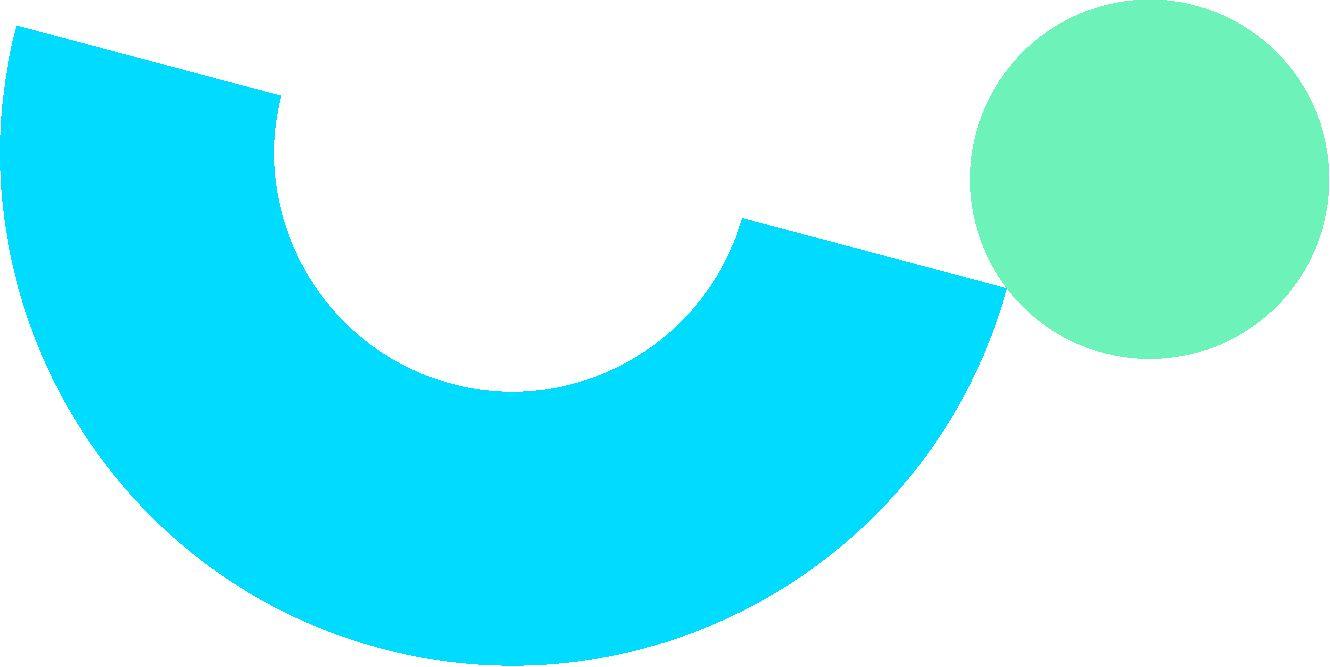

Healthservices shouldcarefor us‘Auntie Style’*
Aconversationaboutprimarycarewith IndigenousYouthinWinnipeg
November2023


Communitypartners




*Kinshipandtheimportanceoffeelingcaredforandrespectedcomeupoften.Inspiredby theAboriginalHealth&WellnessCentre’sapproachtohealthcare,‘AuntieStyle’means systemsandworkersarerootedintheconceptofkinshipandareabletoprovideculturally safecare.
VisittheOurCarewebsite:ourcare.ca
ExploretheOurCaresurveydata:data.ourcare.ca
VisittheMASSLBPwebsite:masslbp.com
©2023MAPCentreforUrbanHealth.Thisreportmaybereproducedfor non-profitandeducationalpurposeswithcreditgiventothepublisher.



AbouttheCommunity Roundtable
OurCareisapan-Canadian conversationwithmembersofthe publicaboutthefutureofprimary care.TheprojectisledbyDr.Tara Kiran,afamilyphysicianand researchscientistbasedatSt. Michael’sHospital,UnityHealth Toronto,andtheUniversityof Toronto.Therearethreephasesto theproject:anationalsurvey, provincialprioritiespanels,and communityroundtables(seeAbout OurCareonpage19formore details).
Inordertodesignaprimarycare systemthatmeetstheneedsofall Canadians, thechallengesand barriersofmarginalizedcommunities mustbecentredintheconversation. TheOurCarecommunityroundtables aimtolearnfromcommunitiesthat havebeenhistoricallyexcludedor consistentlyunderservedbythe primarycaresystem.
OurCarepartneredwithMichael RedheadChampagne,acommunity leader,author,andorganizerbased inWinnipeg’sNorthEnd.Michael hostedtheIndigenousYouth Roundtable,recruitedyouthand inviteddecisionmakerstojoininthe ListeningCirclethatconcludedthe day’sevents.OurCareextendsdeep gratitudetoMichaelforsharing

histime,hiswisdom,andfor leveraginghisrelationshipsin supportofthisroundtable.
TheRoundtableforIndigenousYouth convenedonNovember15,2023for sixandahalfhoursattheNeeginan Centre(AboriginalCentre).
Participantswereinvitedtospendthe daylearningaboutprimarycareand tosharetheirexperienceswiththe systemaswellastheirideasforhow itmightbeimprovedtobettermeet theneedsofyouthfromFirstNations, Métis,andInuitcommunities. We thanktheparticipantsforsharing theirtime,experiencesandideaswith us.
Theparticipantsheardfromtwo guestpresenters. Inthemorning, ColleenOttertail,aregisterednurse andDirectorofPrimaryCareatthe AboriginalHealth&WellnessCentre ofWinnipegspokeaboutan Indigenousworldviewwhere individualandcommunitywellness areinextricablyconnected.Colleen emphasisedthathealthcarefor IndigenousPeopleneedstoinclude Indigenousmedicalpractice, knowledge,andresourcesalongside conventionalWesternmedical approaches. Colleenshared informationabouttheservices offeredattheclinicbytheir interdisciplinaryteamandhowthe 4



centre’sapproachtohealthcare, rootedintheconceptofkinship,is abletoprovideculturallysafecare.
Intheafternoon,Dr.MandyBuss, IndigenousHealthLeadfor DepartmentofFamilyMedicineand UndergraduateMedicalEducation CourseDirector,IndigenousHealthat MaxRadyCollegeofMedicine, UniversityofManitobapresentedthe recommendationsfromOurCare’s ManitobaPrioritiesPanel.Dr.Buss co-chairedtheManitobaPanel,and shehighlightedasectionof recommendationsdedicatedtoCare forIndigenousPeoples.
Throughoutthedayyoungpeoplein attendancefeltsafeenoughto honouruswithanumberofsongson theirhanddrumandalsosharedthe FirstNations(Anishinabe)knowledge thatcamewiththosesongs.These songswereabeautifulcomplement totheshell,sage,cedar,sweetgrass andtobaccothatwasgiftedtothe youthinaharmreductionkitthat allowedustoshareasmudge(also FirstNationsAnishinabeknowledge) andinvitehealingintothespace.
Participantsspenttimein conversationwitheachother throughouttheday,sharingtheir experienceswiththeprimarycare systemaswellastheirideasfor change. Thisreportreflectsthe themesandideasidentifiedbythe roundtableparticipantsthatwere sharedinplenaryalongwiththose thatwerecapturedbythefacilitators duringthesmallgroupdiscussions.
MichaelorganizedaListeningCircle toconcludetheday’sevents,inviting decisionmakerstojointheyouth, listentotheirexperiencesandhear abouttheirhopesforabetterprimary caresystem. TheListeningCirclewas attendedbytheHonourable BernadetteSmith,MinisterofHousing, Addictions,andHomelessness; ThomasLinner,ProvincialDirector, ManitobaHealthCoalition;Dr.Josh Acquin,MedicalOfficerofHealth, HealthySexualityandHarm Reduction andHannahMoffattfrom theDepartmentofHealth.




WhoWeEngaged andWhy

“Indigenous”isanumbrellaterm, widelyusedinCanadaaswellas internationally,thatdescribespeople whoareFirstNations,statusand non-status,Métis,andInuit.Itis importanttoacknowledgethatour useofthetermisnotintendedto suggestthatpeoplewhoareFirst Nations,Métis,orInuitarea monolithicgroup,andwedo understandthereisincredible diversityrepresentedundertheterm. Inthisreport,weuseIndigenous whenreferringtopeoplewhoareFirst Nations,Métis,andInuit inaholistic manner,andFirstNations,Métis,or Inuitwhenthereferenceisspecific.
Accordingtothe2021Census,5%of thetotalpopulationinCanadaare Indigenous— 1,048,405people identifiedasFirstNations,624,220as Métisand70,545asInuit.1Itiswidely believed,however,thatCensus figuresundercounttheactual numberofIndigenouspeople becausetheCensustoolisnot accessible,requiresafixedaddress, anddistrustingovernment
1 https://www150.statcan.gc.ca/n1/daily-quotidien/220921/dq220921a-eng.htm
institutionsisunderstandablyhighin Indigenouscommunities.2
Manitobaistheprovincewiththe largestproportionofIndigenous peopleinallofCanada(18.1%),3and Winnipeghasthelargesturban Indigenouspopulationinthe country.4TheIndigenouspopulation inCanadaisgrowingatafasterrate thanthenon-Indigenouspopulation andisalsoyounger,withamedian ageof33.6comparedto41.7for non-Indigenousresidents.5
Colonialismistheprimarydriverof healthdisparitiesbetween Indigenousandnon-Indigenous people. Theattempttoforcibly assimilateIndigenousPeoplehas destabilizedthedriversofIndigenous healthbyremovingaccessto resource-richlandandimposinga hierarchyofEurocentriccultural, social,andeconomicstructuresand beliefsthathavesuppressedthe economicandsocialwellbeingof Indigenouspeopleand communities.6
2 https://www.toronto.ca/city-government/accessibility-human-rights/indigenous-affairs-office/torontos-indigenous-peoples/#:~:text= However%2C%20other%20research%20has%20shown,peoples%20to%20fill%20out%20censuses
3 https://www150.statcan.gc.ca/n1/daily-quotidien/220921/dq220921a-eng.htm
4 https://www150.statcan.gc.ca/n1/daily-quotidien/220921/dq220921a-eng.htm
5 https://www150.statcan.gc.ca/n1/daily-quotidien/220921/dq220921a-eng.htm
6 https://www.canada.ca/en/public-health/services/publications/science-research-data/key-health-inequalities-canada-national-portraitexecutive-summary.html



The2022HealthStatusofManitobans reportreleasedbytheProvincial PublicHealthOfficernamedracism, colonialism,andlowincomeaskey determinantsofhealthfor Manitobans.Lifeexpectancy,awidely usedindicatorofapopulation’s health,isincreasingamongmost populationgroupsinManitoba exceptforFirstNationsPeople,where lifeexpectancyisalmosttenyears shorterthanotherpopulation groups.7Nationaldatahasshown thattheprevalenceofchronic diseasessuchasasthma,diabetes, andarthritisishigheramongFirst NationsandMétisadultscompared tonon-Indigenousadults.8
Itisoftenhardertoattractyouthto conventionalpublicengagement activities,andgiventherelative youthfulnessoftheIndigenous population,wewelcomedthe opportunitytohostatablefor IndigenousyouthinWinnipeg.
Twenty-sixyouth,aged19-29, participatedintheday.These participantswereinvitedtothe roundtablethroughyouth-serving organizations,programs,and networksknowntoMichaelRedhead Champagne.Participantsweregiven anhonorariumtothankthemfortheir time,aswellasneeds-based support,suchastransitfareand financialsupportforchildcare responsibilities.
Thisroundtablewasconvenedin ordertoheardirectlyfrom IndigenousyouthinWinnipegwhose voicesandconcernsareoften missinginthepublicrealm.Even thoughtheManitobaPrioritiesPanel includedarelativelyhighproportion ofIndigenousparticipants(almost 30%),Indigenousyouthwerenotwell represented.
7 https://www.cbc.ca/news/canada/manitoba/social-determinants-health-first-nations-northernmanitoba-1.6693246#:~:text=As%20of%202016%2C%20life%20expectancy,growing%2C%20accordin g%20to%20the%20report.
8 https://www.canada.ca/en/public-health/services/publications/science-research-data/key-healthinequalities-canada-national-portrait-executive-summary.html


WhatWeLearned
DuringtheRoundtableforIndigenous Youth,participantsspenttimein smallgroupdiscussions,sharingtheir experiencesandideasforchange. Participantswereprovidedwiththe followingpromptstohelpframetheir conversations:
● Whatdoesprimarycaremean tous?
● Whatisworkingwelland positivelycontributingtoour health?
● Whatisn’tworkingwell?What barriersaffectaccessto primarycareforIndigenous youth?
● Reflectonthe recommendationsofthepanel, isanythingmissing?
● Identifyideastoimprove accesstoprimarycarefor IndigenousYouth
Thecontentsoftheseconversations havebeenorganizedintoThemes thathighlighttheexperiencesand challengestheparticipantsidentified, andIdeasforChangethatdetail potentialsolutionssharedbythe participantsduringroundtable discussions.
Themes

A.Anti-Indigenousdiscriminationis pervasiveacrossthehealthcare system
“Wewalkintoahospitalandexpect tobediscriminatedagainst.”Thiswas theopeningstatementfromoneof thetablesinthefirstplenaryreport backfollowingthemorning’ssmall groupdiscussion,andelementsof thisexperiencewereechoedbyevery table.Theyouthexpressedadeep mistrustofthemainstreamhealth caresystemandsharedstoriesof howtheyorpeopletheyknowhave receivedinferiorcareorhadto endurelongwaittimeswhichthey attributedtoracismand discrimination.Participantsasked wheretheycouldgoforcarewhere theywouldnotfaceracism. Indigenousyouthoftenputoff seekingmedicalcareuntilit becomesanemergencysituation.
WhenIndigenousyouthdoseekcare, theyindicatedadesiretoworkwith healthcarestaffwhoareconsiderate ofpeople’sdifferentpersonalitiesand needs,whounderstandthatmany youthhaveexperiencedtrauma,and whoofferyouthtrauma-informed approachestocare.

B.Indigenous-ledcareandspaces arecriticaltothewell-beingof individualsandcommunities
Participantsfeltthatspacessuchas theNeeginanCentre(wherethe roundtablewasheld)notonly improveaccesstocareforpeople whoareFirstNations,Métis,andInuit butareimportantfortheoverall wellbeingofIndigenouscommunities. Afewparticipantssharedtheyhad beenunawareoftheNeeginan Centrebeforetheroundtableand expressedinterestinreturningto learnmoreabouttheprogramsand servicesithadtooffer.
Indigenous-ledspaces,walk-in clinics,andmedicalpracticeshelpto reducedistrustinthesystem.They areplaceswhereIndigenous practicessuchassmudgingand drummingarethenormandwhere Indigenouspeoplewillnotface discriminationandjudgement. Traditionalmedicinesandhealers,as wellascarethatisprovidedin Indigenouslanguagesare important forthehealthandwellbeingof IndigenousPeople.Amoreholistic approachtocareisappropriatefor Indigenouspeople.Onegroup expressedconcernthatmany Westernwellnesspracticesare culturallyappropriatedfrom traditionalIndigenouspractices.

Onegroupofyouthcautioned againstreducingthediversityof needs,knowledge,practices,and teachingsofpeoplefromFirst Nations,Métis,andInuitpopulations intothemonikerofIndigenous.They feltthatmanythingsthatarelabelled IndigenousaremeantsolelyforFirst Nationspeople,andthatgreater accesstoMétisandInuitknowledge isrequired.
C.Indigenousyouthneedsupportto navigatesystems
Informationandsupportfor Indigenousyouthtohelpnavigate thehealthcaresystemwasraised consistently.Manyyouth,someof whomwereparents,sharedtheydid notknowwheretogotofindafamily doctor.Youngparentsoftendonot knowwhatservicesareavailableand howtonavigatethesystemwhen theyortheirchildrenhavespecial needs.
Itissometimesdifficultforyouthto gethealthcards,especiallyifthey arestrugglingwithhomelessnessor childwelfare,oriftheirparentsor caregiversare.Youthneedeasier accesstohealthcardsandalsofeel thehealthcardsthemselvesshould beupgradedtobeplastic/ID-style cardsthataremoredurableand

easytocarry. Youngparentsalso wantedhelptoregistertheirkidsfor thenecessarypiecesofidentification, likebirthcertificatesandhealth cards.
Anumberoftheparticipantsspoke abouttheirexperienceagingoutof thefostercaresystem.Thefoster caresystemitselfdoesnotsupport youthwhileincare,andsomeyouth sharedstoriesofincorrectdiagnoses andmedicationusedasamethodto controlbehaviourdeemedas undesirable.Furthermore,many youtharenotsupportedduringthe transitionfromafosterhometo independentlivingandspokeofnot havinganadulttheycouldturntofor guidanceoradviceduringthis difficulttransitionperiod.
D.Kinshipanddisparitiesinaccess tomedicationandservices
Theyouthtalkedabouthowthey oftenhadtoworryaboutmorethan justthemselves,thatthehealthof thosetheycareaboutalsoaffects theirownhealth.Whenmembersof theirfamilyarenotgettingaccessto thecaretheyneed,youthare requiredtotaketimeawayfromtheir ownpursuitsandneedsinorderto supportandhelptheirfamilies. Participantsexpresseddismayabout

theprevalenceofunhousedeldersin theircommunities.
Healthcareservicesthatare availableon-reserveweredeemedto bewoefullyinadequateand participantsfeltthatmorehealth resourcesareneededonFirstNations reserves,andforrural,fly-in,orwinter iceroadcommunities.Onetable raisedconcernsthatconfidentiality wasmoredifficulttomaintainin thesesmaller,isolatedcommunities andwonderedhowthisaffected people’sdesiretoseekcareor discloseissues.
Someyouthnotedthat“beingtreaty” meanttheyhaddentalandvision carecoveragebutthatprescription drugcoveragewasnot comprehensive.
Ideasforchange
TheRoundtableforIndigenousYouth participantsraisedmanychallenges whilealsosharingseveralideasthey feltwouldleadtohigherquality primarycareforIndigenousyouth andothermembersoftheir communities.Theirideasremindus thatitiscriticalforprimarycare renewaltobegroundedin anti-colonialpracticesand approaches.

1.Holdallstaffaccountableforthe waytheytreatpatients,especially Indigenouspeople,sothatall patientsaretreatedwithdignityin hospitalandothermedicalsettings. Thisneedstobemorethanjustan annualtrainingsessionandcould include:
● MandatinganIndigenous studiescourseforall healthcareworkers
● Ongoingprofessional developmentforeverystaff personthatinstillsempathyfor, andunderstandingof, Indigenoushistoryandthe ongoingimpactofcolonialism
● Ensuringthattrauma-informed practicesandharmreduction approachesbecomethenorm inclinicalsettings.Staffneedto beabletobettersupportand workwithpatientswhose behaviorisdisruptive.The defaultresponseshouldnotbe toturnpeopleaway
● Makingitnormaltonameand addressactsofdiscrimination

2.HiremoreIndigenousstaffacross thehealthcaresystem.Thisincludes:
● Increasingthenumberof Indigenoussupportworkers andstaffthatwillaskabout people’smental,emotional, andspiritualconcerns
● Payingpeoplefairlytoworkin thehealthsystem,aswellas fundingforequipmentand supportinginfrastructureto providehighqualitycare
● Protectingandprioritizing spacesforIndigenouspeople inmedicaltrainingprograms
● Fosteringmoreinclusivehealth caresettingsinordertoretain Indigenousstaff.Thisalso includeshiringmore internationally-trainedstaff whooftenbringideas, practicesandperspectives thatareoutsidetheWestern norm

3.IncreaseaccesstoIndigenous modelsofcareby:
● Providinghealthcareworkers in-servicelearninginFN,Métis andInuitcommunities. Objectivesandlearninggoals shouldbedeveloped collaborativelywiththe communities.Thisshouldonly occurafterpre-courseworkon historicalandcontemporary colonialism,criticalracetheory, andself-reflectionsothatthey canfurthercontextualizethisto thelivedrealitiesofFN,Métis andInuithealthandwellness.
● IncorporatingIndigenous epistemologies,knowledges, andviewsonhealthunderthe directionofIndigenousElders, KnowledgeKeepers,and traditionalmedicinepeople.
● IncludingmoreIndigenous knowledgeandperspectivesin thedeliveryofcaresothat clinicianstalkaboutwhatis goingwellandwhatcanbe builton
● Offeringtrainingprogramsfor Indigenousyouthsotheycan learnabouttraditional medicine

● Establishingandfundingmore Indigenous-ledspacesand services,includingRapid AccesstoAddictionMedicine clinicsandmentalhealth servicessuchastheHopefor WellnessHelpline.
4.Removebarriersthatprevent Indigenouspeoplefromaccessing care.Thisincludes:
● Offeringbuspasses, discountedtickets,or transportationtoandfrom medicalappointments
● Revisingpoliciesthatprevent youthandpeoplewhoare unhousedfromgettinghealth cardsandotherformsof identificationrequiredto accessservicesandsupports
5.EncourageIndigenoussovereignty andprideforIndigenousyouth.This couldinclude:
● Bringingtogetherdifferent groupsofIndigenousPeopleto learnandsharetheir experiencesabouttheharmsof colonialism
● Establishingmoretrainingand programsforIndigenousyouth tofindsuccessanda“career worthfightingfor”.Indigenous healthcareworkerscould sharestoriesoftheirown careerpath


● Increasingopportunitiesfor FirstNations,Métis,andInuit youthtolearnmoreabouttheir ownheritageandculturesin ordertohaveabetter understandingoftheirrights
● EmpoweringIndigenousyouth toactivelyengageinself-care andtoprioritizetheirown well-being.

Acknowledgments
TheOurCareprojectteamgratefullyacknowledgestheleadershipof MichaelRedheadChampagneinthedevelopmentandhostingofthe RoundtableforIndigenousYouth.Wewouldalsoliketothankourguest speakers,ColleenOttertailandDr.MandyBussforsharingtheirtimeand expertise.
MichaelRedheadChampagne,CommunityLeader,Author,andHost
MichaelRedheadChampagneisworkingtowardsarevolutionthat dismantlesharmfulsystemsandbuildsupnewonesbasedonjustice, equityandlove.AcommunityleaderfromWinnipeg'sNorthEndwith familyrootsinShamattawaFirstNation,Michaelisahost,helper, publishedauthor,on-screenpersonalityandsought-afterpublic speaker.HeorganizestheannualNorthEndGradWalk,theNorthEnd HistoricalSocietyandservesasaboardmemberforFearlessR2Wand theManitobaHealthCoalition.Findoutmoreat michaleredheadchampagne.com.
PrimaryCarePresenter
ColleenOttertail
DirectorPrimaryCareClinic,AboriginalHealth&WellnessCentreof Winnipeg. RoundtableTeam
TheRoundtableforIndigenousYouthwasdevelopedandsupportedby MASSLBP.MASSisCanada'srecognizedleaderinthedesignof deliberativeprocessesthatbridgethedistancebetweencitizens, stakeholders,andgovernment.Formorethanadecade,MASShasbeen designingandexecutinginnovativedeliberativeprocessesthathelp governmentsdevelopmoreeffectivepoliciesbyworkingtogetherwith theirpartnersandcommunities.Findoutmoreatmasslbp.com.

OurCarePrincipalInvestigator
Dr.TaraKiran
FamilyPhysician,St.Michael'sHospitalAcademicFamilyHealthTeam; Scientist,MAPCentreforUrbanHealthSolutions,St.Michael'sHospital, UnityHealthToronto;FidaniChairofImprovementandInnovation, UniversityofToronto
PrimaryCareCo-LeadsforManitoba
Dr.MandyBuss
IndigenousHealthLeadforDepartmentofFamilyMedicineand UndergraduateMedicalEducationCourseDirector,IndigenousHealth, MaxRadyCollegeofMedicine,UniversityofManitoba
Dr.AmandaCondon
FamilyPhysician,NotreDamedeLourdes,MBAssociateProfessor, DepartmentofFamilyMedicine,MaxRadyCollegeofMedicine,University ofManitoba
Dr.AlanKatz
FamilyPhysicianandHealthServicesResearcher,Winnipeg,MBProfessor, DepartmentsofFamilyMedicineandCommunityHealthSciences,Max RadyFacultyofHealthSciences,UniversityofManitoba
NationalProjectDirector
JasminKay
Host
MichaelRedheadChampagne
Facilitators
JewlesMorrissette
SalenaStarling
Chakotay(Nick)Wakos

ReportIllustrator
MarijaMladenovic

AboutOurCare

OurCareisapan-Canadianconversationwitheverydaypeopleaboutthefuture ofprimarycare.TheprojectisledbyDr.TaraKiran,afamilydoctorand renownedprimarycareresearcherbasedinToronto.OurCarehasthreestages:
1. NationalResearchSurvey
ThesurveywasonlinefromSeptember20toOctober25,2022.Morethan 9,200Canadianscompletedthesurvey,sharingtheirperspectivesand experiences.VoxPopLabsco-designedandexecutedthesurvey.
2. PrioritiesPanels
PrioritiesPanelswereheldinfiveprovinces:NovaScotia,Quebec,Ontario, BritishColumbia,andManitoba.MASSLBPco-designedandexecutedthe panelswithOurCareadvisorsandlocaldeliverypartners.
3. CommunityRoundtables
Communityroundtableswerehostedineachofthefiveprovinces, focusingonhistoricallyexcludedgroupsthatwedidnothearenoughfrom duringstages1and2.MASSLBPco-designedandexecutedthe communityroundtableswithOurCareadvisorsandlocalcommunity organizations.

OurCareProjectPartners

OurCareisfundedby:
HealthCanada
HealthCanadaistheFederaldepartmentresponsibleforhelpingCanadians maintainandimprovetheirhealth,whilerespectingindividualchoicesand circumstances.Productionofthisdocumenthasbeenmadepossiblethrougha financialcontributionfromHealthCanada.Theviewsexpressedhereindonot necessarilyrepresenttheviewsofHealthCanada.
MaxBellFoundation
MaxBellFoundationbeganmakinggrantstoCanadiancharitiesin1972.Today, theFoundationsupportsinnovativeprojectsthataredesignedtoinformpublic policychangeinfourprogramareas:Education;Environment;Health&Wellness; andCivicEngagement&DemocraticInstitutions.TheFoundationalsodelivers thePublicPolicyTrainingInstitute,aprofessionaldevelopmentprogram designedtohelpparticipantsmoreeffectivelyengageinthepublicpolicy process,andPolicyForward,afuture-orientedspeakerseriesthatbringsthought leaderstogethertodiscusstheintersectionsofpolicy,technology,and innovation.
StaplesCanada—EventheOddsCampaign
StaplesandMAPhavecometogethertocreateEventheOdds:aninitiativeto raiseawarenessofinequityinCanadaandtohelpbuildvibrant,healthy communities.Thepartnershipisbasedonthesharedbeliefthateveryone shouldhavetheopportunitytothrive.EventheOddsfundsresearchand solutionstohelpmakethefuturefairforeveryone.Learnmoreat staples.ca/eventheodds.

OurCareSupporters

OurCareisbasedat:
MAPCentreforUrbanHealthSolutions
MAPCentreforUrbanSolutionsisaresearchcentrededicatedtocreatinga healthierfutureforall.Thecentrehasafocusonscientificexcellence,rapid scale-upandlongtermcommunitypartnershipstoimprovehealthandlivesin Canada.MAPisbasedatSt.Michael’sHospitalinToronto.
St.Michael’sHospital,UnityHealthToronto
St.Michael’sHospitalisaCatholicresearchandteachinghospitalindowntown Toronto.ThehospitalispartoftheUnityHealthTorontonetworkofhospitalsthat includesProvidenceHealthcareandSt.Joseph’sHealthCentre.
OurCareissupportedby:
DepartmentofFamily&CommunityMedicine,UniversityofToronto
TheUniversityofToronto’sDepartmentofFamily&CommunityMedicineisthe largestacademicdepartmentintheworldandhometotheWorldHealth OrganizationCollaboratingCentreonFamilyMedicineandPrimaryCare.
St.Michael’sFoundation
Establishedin1992,St.Michael'sFoundationmobilizespeople,businessesand foundationstosupportSt.Michael’sHospital’sworld-leadinghealthteamsin designingthebestcare–when,whereandhowpatientsneedit.Fundssupport state-of-the-artfacilities,equipmentneeds,andresearchandeducation initiatives.BecauseSt.Michael'sFoundationstopsatnothingtodeliverthecare experiencepatientsdeserve.

AdvisoryGroups
OurCareisguidedbyseveralnationalandprovincialadvisorygroups comprisingclinicalleaders,representativesfromprofessionalorganizations, researchers,healthsystemadministrators,andpatients.Theadvisorygroups havehelpedshapeeachphaseoftheinitiative.TheOurCareManitobaProvincial AdvisoryGroupprovidedinputintopopulationsoffocusforthetwocommunity roundtablesinManitobaandmembershelpedmakerelatedconnectionsto localcommunityorganizations.Afulllistofadvisorygroupmembersisavailable ontheOurCarewebsite.

TolearnmoreaboutOurCare,pleasevisitourcare.ca.
OurCareisfundedby


OurCareisbasedat OurCareissupportedby








